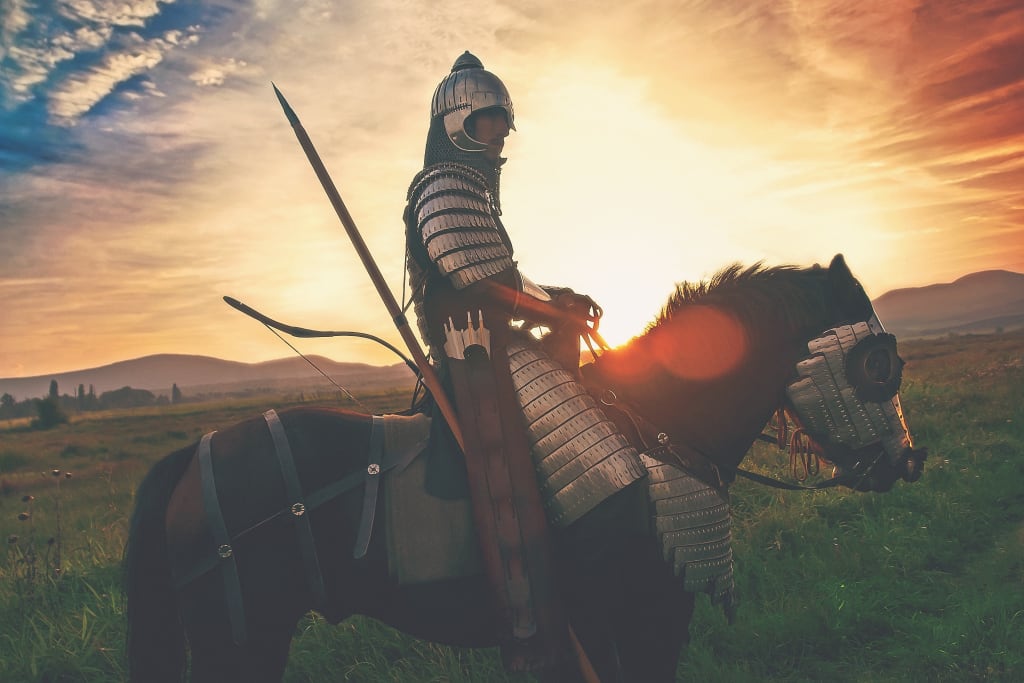
Once upon a time, in the 12th century, there lived a legendary Sultan named Salahuddin Ayubi, also known as Saladin. He was born in Tikrit, a small town in present-day Iraq, in the year 1137. From a young age, Salahuddin possessed a remarkable spirit and courage that would shape his destiny and leave an indelible mark on history.
Salahuddin Ayubi belonged to the Kurdish Ayyubid dynasty, which ruled over Egypt and Syria during that era. As he grew older, Salahuddin developed a deep sense of justice and a burning desire to liberate the holy city of Jerusalem from the hands of the Crusaders, who had conquered it years earlier.
In 1169, Salahuddin's uncle, Shirkuh, a prominent military commander, was sent by the Kurdish ruler to Egypt to restore order. Accompanying his uncle, Salahuddin displayed his strategic brilliance and leadership skills, earning the respect of the army and people alike. When Shirkuh passed away, Salahuddin was appointed as the vizier of Egypt, effectively becoming the de facto ruler.
Salahuddin Ayubi dedicated himself to the cause of unity and the defense of the Muslim world. He established a well-disciplined army, reformed the government, and worked tirelessly to strengthen his rule. Despite facing numerous challenges, including internal strife and external threats from the Crusaders, Salahuddin persevered.
In 1187, Salahuddin's moment to exhibit true bravery arrived. The Crusaders, led by King Guy de Lusignan and the famed Knights Templar, held a firm grip on Jerusalem. Salahuddin, with his unwavering determination, mustered his forces and launched a strategic campaign to reclaim the holy city.
Battle after battle, Salahuddin Ayubi demonstrated his military genius, inspiring his soldiers with his valor and leading them from the frontlines. The Battle of Hattin in July 1187 was a turning point. Salahuddin's forces decisively defeated the Crusaders, capturing King Guy and securing control over much of the Holy Land.
However, what set Salahuddin apart was not just his military prowess but also his chivalry and respect for his enemies. Despite his victory, Salahuddin treated the captured Crusaders with utmost dignity and mercy, earning admiration even from his adversaries. He displayed a level of humanity that was rarely seen in the heat of battle, fostering a spirit of mutual respect and honor.
Salahuddin's triumph culminated in the recapture of Jerusalem in October 1187. Even in victory, he ensured the safety of the Christian population, allowing them to leave peacefully and even providing financial assistance to those in need. This benevolent act solidified his reputation as a noble and magnanimous leader.
Sultan Salahuddin Ayubi' s bravery and gallantry became the stuff of legend. His efforts to unite the Muslim world, his unwavering determination to reclaim Jerusalem, and his compassionate treatment of his foes set him apart as a symbol of valor and virtue. Even the renowned English monarch, Richard the Lionheart, who fought against Salahuddin, held him in high regard, recognizing him as a worthy adversary and a paragon of bravery.
Salahuddin Ayubi' s legacy continues to inspire generations to this day. His noble character, strategic brilliance, and unwavering bravery in the face of adversity have left an indelible mark on history. Sultan Salahuddin Ayubi will forever be remembered as a true hero and one of the greatest defenders of Islam.
Lesson
The story of Sultan Salahuddin Ayubi teaches us several valuable lessons, but one prominent lesson stands out: Bravery and leadership are not solely measured by military triumphs but also by compassion, mercy, and respect for others.
Salahuddin Ayubi' s bravery was evident in his unwavering determination to liberate Jerusalem from the Crusaders. However, his true strength lay in his ability to treat his enemies with dignity and humanity. He displayed chivalry and mercy, even towards those who opposed him. This teaches us that true bravery encompasses not only physical courage but also the courage to show kindness and compassion, even in the face of conflict.
Furthermore, Salahuddin's leadership was marked by his commitment to unity. He worked diligently to unite the Muslim world and to establish a well-disciplined army. His leadership style emphasized inclusivity and respect for diverse perspectives, enabling him to rally his forces towards a common goal.
In essence, the story of Salahuddin Ayubi teaches us that bravery and leadership are not just about achieving military victories, but also about embodying noble virtues such as compassion, mercy, unity, and respect. These qualities elevate leaders and inspire others to follow their example.
About the Creator
Iamsudais4
I am Sudais. I am here to share the interesting stories with you. Let's go.






Comments (1)
How is it?